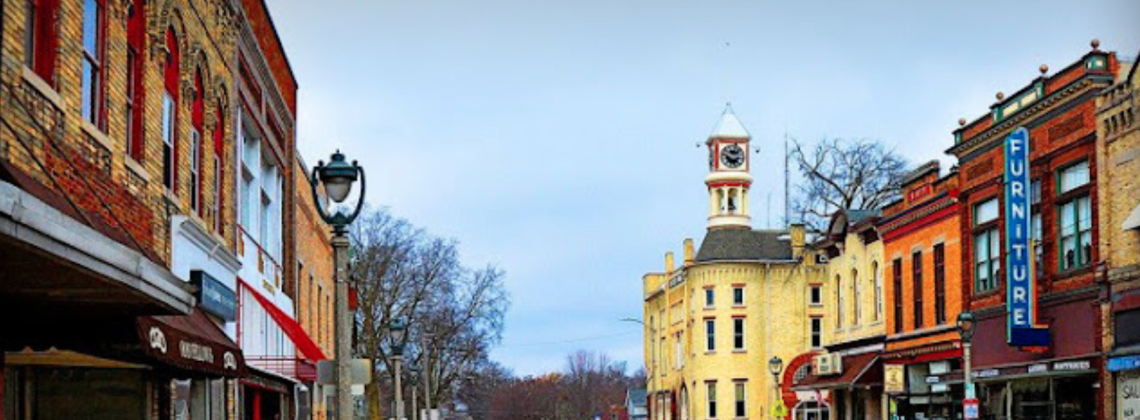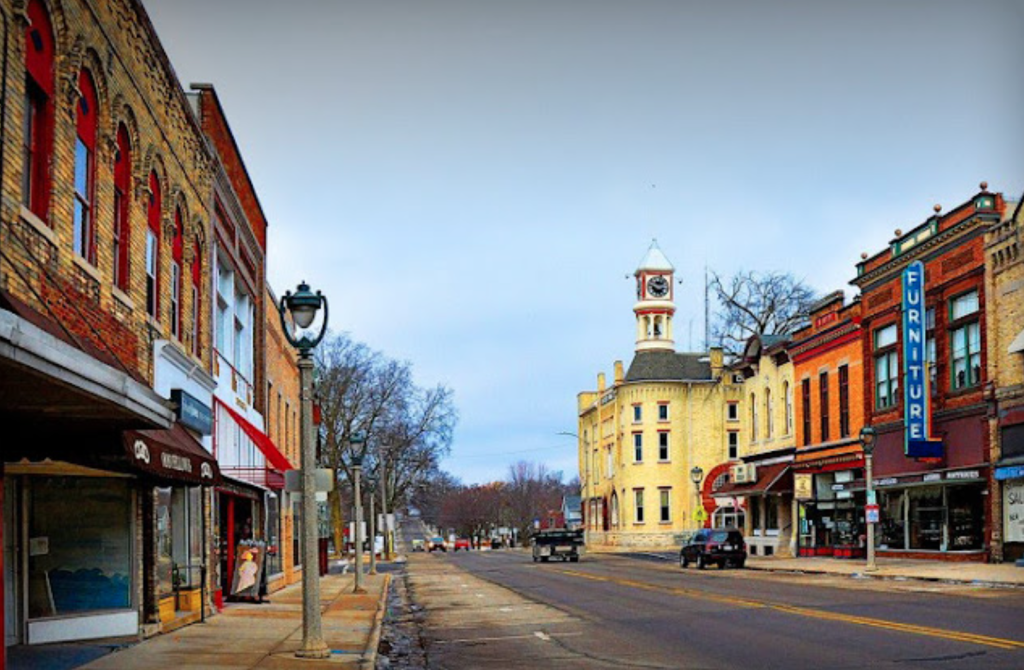

George Saunders’ novel is a vital foil to Thornton Wilder’s famous play
I was a teenager the first time I read Thornton Wilder’s Our Town, and its haunted landscape was disconcerting. From the mention of tombstone dates in the first few pages to its ending among cemetery ghosts, Our Town’s fictional terrain is thick with loss, death, mortality—something I didn’t quite understand but recognized enough to want to turn away from the story. We see characters walking around and know that they will die and how it will happen.
Recently I reread it, and the play is striking in its understanding of small-town life. With a population of 2,642, the play’s setting is ten times the size of the Louisiana farming town where I grew up. Still, Grover’s Corners feels familiar. They even talk about the weather.
But the play’s chief insight is the way it renders the ephemeral beauty of our lives, especially its depiction of mortality, the inevitable passage of time, and how we are often mysteries to one another. “It goes so fast. We don’t have time to look at one another,” says one character. As the Stage Manager puts it: “You know how it is: you’re twenty-one or twenty-two and you make some decisions; then whisssh! you’re seventy: you’ve been a lawyer for fifty years, and that white-haired lady at your side has eaten over fifty thousand meals with you.” Even the structure mimics the increasing velocity of time, the flight of years: There are three acts, each one shorter than the one before, and in between, more time goes by—from three years to nearly a decade.
The play helps us realize, if only for a moment, the wonder and mystery of life—something the Stage Manager says only “saints and poets” glimpse while alive. Helping us to see what we often miss, Our Town reads like a love letter to the world. In a fervor of mortal valediction, a character revisits a day from her life and declares, “I didn’t realize. . . . Good-by, Grover’s Corners . . . Mama and Papa. Good-by to clocks ticking . . . and Mama’s sunflowers. And food and coffee. And new-ironed dresses and hot baths . . . and sleeping and waking up. Oh, earth, you’re too wonderful for anybody to realize you.”
Our Town encourages retrospection as the audience supplies its own corresponding moments. The play sends us back into our lives with renewed awareness of all the vanishing moments, waking us up to the world. It also stresses our incapacity to realize, fully, the vitality all around us. “I can’t look at everything hard enough,” someone says. As a friend puts it in the marginal note in his copy of the play: “We live our lives unconsciously and then we grieve over what is gone.” But Our Town’s sense of melancholy is almost overwhelming. When I read the play recently, it hit me like a gut punch. Or two.
Our Town has special significance in our family because my grandmother took a class with Thornton Wilder when she was an undergraduate at Aurora College in the 1930s. She may have audited a class at the University of Chicago when Wilder was teaching there, but I don’t know for sure. Recently I contacted Aurora University’s archivist, looking for details about Thornton Wilder’s connection to the school, but she wasn’t able to find any information. It’s one of the countless things I want to ask my grandmother, but can’t.
I think of her as a girl listening to Wilder, before the countless days with my grandfather at her side had begun, and then the countless days without him after he died. What did she think of Our Town? Was it true to her experience? My grandmother was no stranger to grief—especially the kind of grief and loss depicted in the play. Sitting in that auditorium, she was like the characters at the outset of Our Town, innocent of the inevitable joys and sorrows in store.
As a teacher, I have a deep sense of literature’s benefits. Certain stories prompt us to reckon with our experiences, to see things rightly. As Richard Wilbur says, “No poetry can have any strength unless it continually bashes itself against the reality of things.” The truth of Our Town—that familiarity and the business of life diminish wonder and obscure us from one another—is a powerful one.
Yet Our Town’s insight, poignant though it is, seems incomplete. Rereading the play called to mind another American ghost story, one that features not only love but hope—which makes all the difference.
George Saunders’ Lincoln in the Bardo takes its subject from 1862 newspaper reports in which a grieving Abraham Lincoln repeatedly visited his son’s crypt to hold his body. Toward the end of Saunders’ novel, Lincoln cradles his son and then returns to life in the midst of war: “His mind was freshly inclined toward sorrow; toward the fact that the world was full of sorrow; that everyone labored under some burden of sorrow; that all were suffering; that whatever way one took in this world, one must try to remember that all were suffering . . . and therefore one must do what one could do to lighten the load of those with whom one came into contact . . . .” As Lincoln recognizes a world full of sorrow, the memory of his son helps him relinquish his grief and resolve to help those he can: “Our Willie would not wish us hobbled in that attempt by a vain and useless grief.” This moment is part of what makes Lincoln in the Bardo such a powerful work.
We are always changing, and all of us carry memories that seem to emerge from worlds that have disappeared. All of us know the sorrow of longing for what was. But Lincoln in the Bardo suggests that despite changes in our circumstances and in our very selves, despite our inability to realize fully the wonder and mystery around us, and even despite the presence of mounting losses, love can yet shape our actions. Saunders’ novel suggests that “love is as strong as death,” as the Song of Solomon puts it. For me, the depiction of such love makes Lincoln in the Bardo a bracing book and a worthy successor to Thornton Wilder’s American ghost story.
Robert Erle Barham is Associate Professor of English at Covenant College in Lookout Mountain, GA. He is the deputy editor of Current.